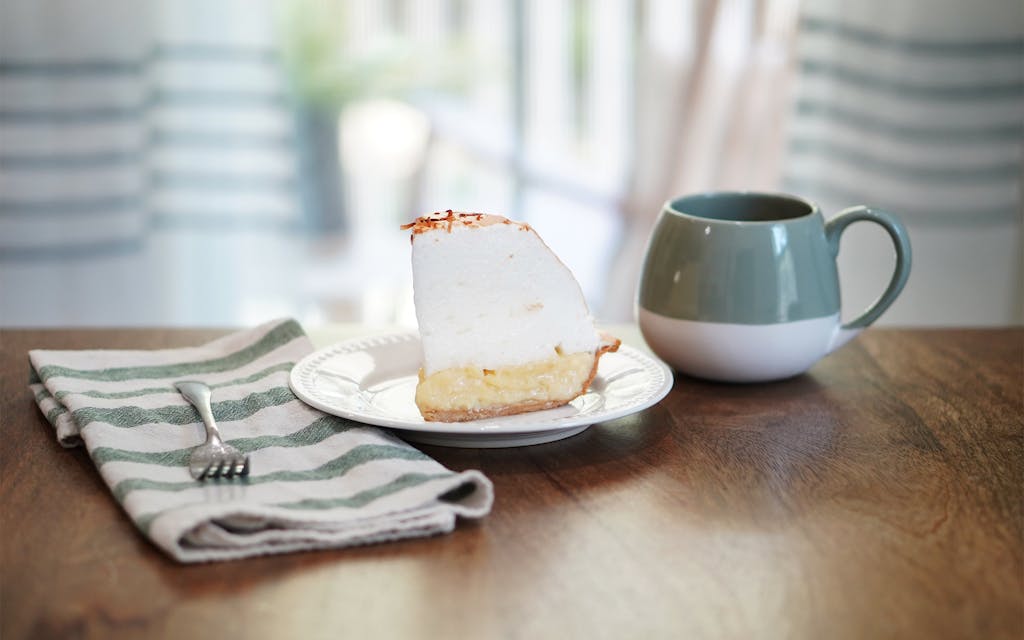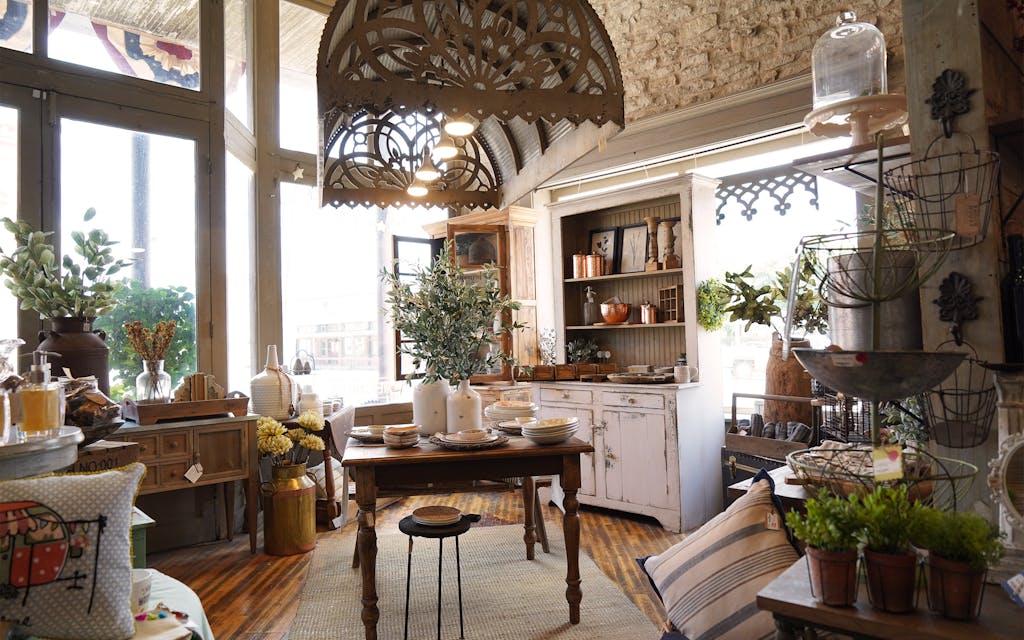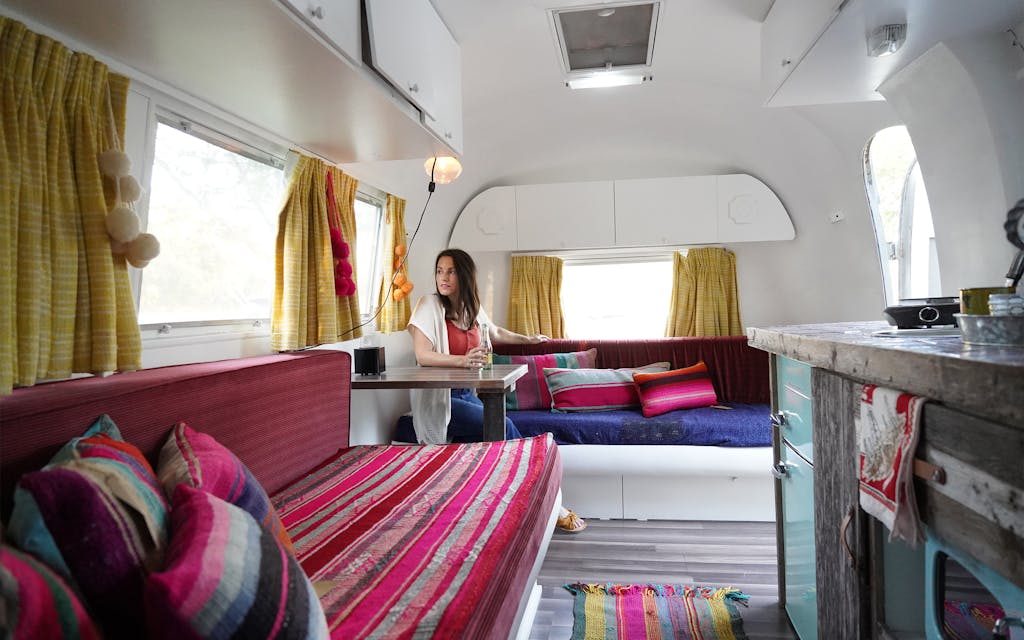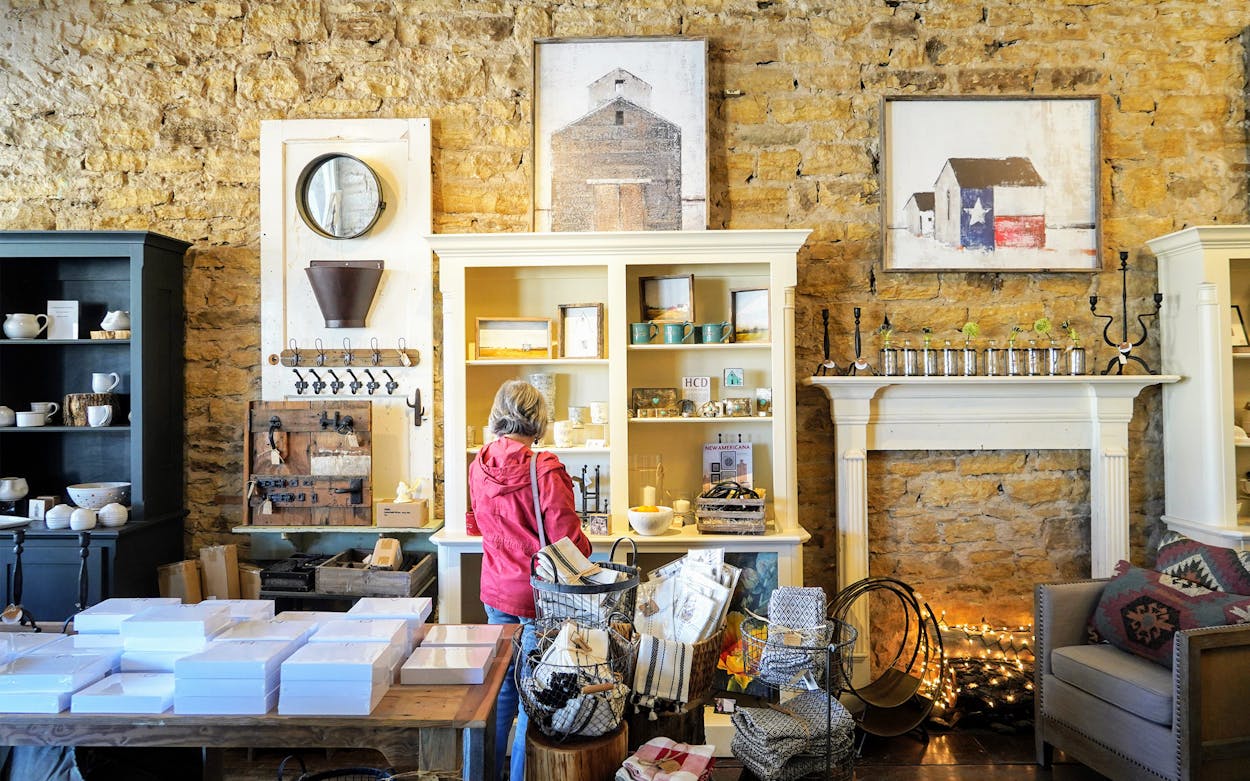There’s something about the little town of Hico, a burg of fewer than two thousand residents in Hamilton County that’s attracting more than its share of appealing indie businesses and discerning visitors. Maybe it’s the two-block stretch of downtown Pecan Street, which is pedestrian-friendly and features a tree-shaded esplanade—a little oasis off the main thoroughfare, itself relatively sleepy. Part of the appeal is undoubtedly the predominance of rock buildings, favored here after terrible fires destroyed much of downtown in the 1890s. There’s a unity and solidity to the look, and a strong feeling of bygone small-town Texas.
To many outsiders, Hico (pronounced “High-koh”), which grew as a cotton- and cattle-market town at the junction of U.S. 281 and Texas Highway 6, may be best known for the legend of Billy the Kid (or, rather, of Brushy Bill, a resident who in the late 1940s claimed to be the famous outlaw everyone believed had been shot dead in New Mexico in 1881). There’s a Billy the Kid statue on Pecan Street, and a little museum too. But you may notice that Hico is free—some would say blessedly free—of major attractions. For those, you can drive twenty miles to see a by-appointment-only collection of Matisses, Warhols, and Hoppers in Hamilton; thirty miles to step in sauropod tracks at Dinosaur Valley State Park; or forty to Granbury’s touristy town square.
Visitors find Hico a nice place just to be. “It seems like most people come here to relax, eat, visit, and make new friends,” says Jennifer Jones, who moved to town from Fort Worth with her husband, Wes Lunsford, about a decade ago. They renovated a Pecan Street building and filled it with a sandwich and ice cream shop and a boutique hotel. “Every time we would drive through, like so many do, we would say, ‘What a great little town,’ ” says Jones. “Hico has an innate charming character.” Now the couple is converting an old cotton-oil mill into a wedding space and events venue called HiCo Hall. They plan to host live music shows starting as soon as this fall.
Fort Worth’s Clay Mazur and his company Hilaco have bought six buildings in town and have big plans. “Hico is very walkable, it’s quaint, and it kept all of its charm. When you walk around downtown, it’s a neat little place,” he says. His first project to open will be a wood-fired pizza restaurant called Barbacelli’s, coming to Railroad Street in late September. He’s also renovating a Pecan Street space that will house Oma Leen’s, a farm-to-table restaurant that’s relocating from nearby Walnut Springs. Its craft cocktails will be served with another bit of Old West history coming to Hico. Mazur is installing an antique saloon bar, vintage 1880, that stood in a Dodge City, Kansas, establishment for its first eighty years and later was owned by Gene Autry, the “Singing Cowboy” from Tioga. And for the floor above Oma Leen’s, Mazur is working on a six-room boutique hotel, promising upscale accommodations with “a very Western-chic vibe.” He hopes to open both by the end of the year. When all the new ventures are in place, a visitor seeking quiet and relaxation could stay three nights in Hico, have plenty of shopping options, and enjoy a different dinner-and-drinks experience each evening.

Eat & Drink
At the Midland Hotel on Pecan Street, chef Eric Hunter has made over the menu at five-year-old Chop House with kicked-up Southern dishes, such as collards braised in hot sauce and served alongside red chile–crusted fried chicken, and cocktails made from house-infused spirits (the boozy strawberry lemonade hits the spot right now).
Jones and Lunsford’s Eis is great for families, with house-made ice cream and top-notch sandwiches. The owners smoke the meats in-house and serve ham and bacon from Hamilton, Crazy Water from Mineral Wells’s famous springs, and, of course, Dublin sodas. They just finished tearing down a wall and converting their former wine shop into a full bar for Eis that pours only Texas beers and spirits.
Behind Pecan, in an alley off Elm Street, Buzzed Brumby is a little coffee trailer with a big presence in town. You might find it hosting a Saturday farmers’ market or dishing out wood-fired pizzas (with regional wines, beers, and spirits) on open-mic nights.
Old and new Hico peer at each other across a side lane off Second Street: The beloved Koffee Kup Family Restaurant has comfort-food plates like chicken-fried steak and offers up to sixteen varieties of pie each day, most piled high with meringue. Across the street, 2nd Street Bakeshop and Coffee is a modern coffee shop in a rambling old house. Choose from espresso drinks, creative baked goods (including vegan options), and lunch fare, then settle in one of the cozy rooms or on a porch swing outside.
At Two Clay Birds, the bakers leave fresh breads and sweets (and preserves and coffee beans roasted in-house) on the front porch Thursdays through Sundays, and you pay on the honor system. Tip: stop here first and get some of the fantastic rosemary-garlic sourdough before it’s gone.

Do
The Billy the Kid Museum, like many a small-town museum, is the size of a modest shop. Actually, it is a modest shop, with military- and patriotic-themed hats, shirts, and gifts for sale in the front room. In the back, much of Billy the Kid exhibit is made up of newspaper clippings showing grainy photos of the young outlaw next to snaps of the elderly Brushy Bill. Bonus points for the wall-panel text edited in what looks like Sharpie ink, and for the TV looping Bob Phillips’s Texas Country Reporter piece on Billy and Hico. About half the room is filled with unrelated vintage bric-a-brac (overheard: “Are those Billy the Kid roller skates?”).
For more-active pursuits, Siloville is a climbing gym in a set of old grain silos, open mainly on Saturday afternoons. It’s too hot to be inside the silos in the summer, but you can climb the outsides too, and the property includes a zip line as well as obstacle courses. A little north of downtown, the sixty-acre Mini Tank Combat Battlefield Zone lets you drive small tanks that shoot paintballs.

Shop
Hide and Horne, which opened this year on Pecan Street, rivals luxe outfitters in bigger cities with hats, boots, and leather coats for men and women and a great selection of wild rags. Sisters Jane and Cindy Schumacher supplement their design business with the retail shop Hill Country Dwellings, where you’ll find well-chosen decor, jewelry, and gifts. Hico Mercantile, in the totally transformed 1890s opera house, is home to dozens of individual boutiques selling clothing, home goods, antiques, and more. Wiseman House Chocolates, near Koffee Kup in a house dating from 1908, is a serious chocolatier known well beyond Hico, especially for its truffles; the most popular is the Wild Woman—Belgian dark chocolate ganache dipped in dark chocolate and finished with a dark chocolate drizzle.

Stay
The Upstairs Inn, which Jones and Lunsford opened in 2012, set the bar in Hico for overnight accommodations. This year it expanded from three to six comfy rooms, mostly upstairs from Eis, that feature exposed rock walls, restored antiques (which are for sale), and luxury linens.
In 2017, the circa-1896 Midland Hotel, which had stood empty for decades, was revived as a serene inn with a bright, airy lobby and a very Hico mix of contemporary and Old West appointments. The fourteen varied rooms, mostly above the Chop House, include small nods to Hico history.
Glamping is an option too, thanks to Off the Vine RV Park, which brings slight Marfa vibes (though not the scenery—it’s in a residential area a few blocks from the town center). Its vintage trailers and safari tents are tricked out with Peacock Alley linens and extras such as bathrobes and supplies of Topo Chico. The six restored trailers have Texas city themes—the Maria (San Antonio) is a 1964 Airstream with serape fabrics and Mexican tiles; the Galveston-themed Lucy, a 1966 Silver Streak, has beachy touches and a proper Southern screen door; the cute two-sleeper Annie O. celebrates Fort Worth with cowgirl decor—just don’t bump your head on the mounted cow horns.
- More About:
- Hico








